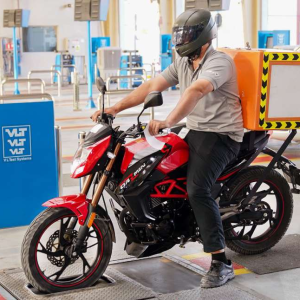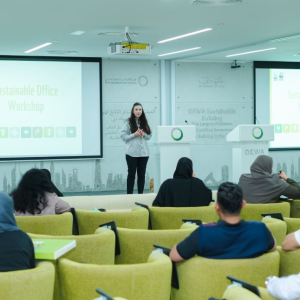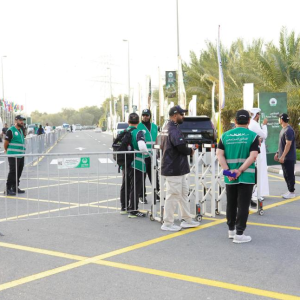For millions of expats living in the UAE, staying connected to family and friends back home is not just a comfort—it’s a lifeline. But in a country where popular calling apps like WhatsApp, Skype, and FaceTime are blocked, making even a simple call can feel like a digital maze.
Add to that the growing restrictions on VPNs (Virtual Private Networks), and you’ve got a frustrating experience for those trying to bridge long distances through a screen.
But there’s hope. A quiet revolution is happening behind the scenes—led by a powerful yet underused technology called Obfuscated Servers. These servers are helping thousands bypass VPN blocks in the UAE and reclaim their right to connect.

This is not just about tech. It’s about people. About stories. About resilience.
Living in the UAE: Glamour Outside, Restrictions Inside
When people think of Dubai or Abu Dhabi, they imagine luxury cars, skyscrapers, and a lifestyle straight out of a movie. And while there is no doubt that the UAE offers opportunity, safety, and tax-free income, the digital restrictions come as a shock to many newcomers.

Aliya, a 31-year-old marketing professional from Kazakhstan, recalls her first week in Dubai.
“I tried calling my mother on WhatsApp after landing. Nothing went through. I thought it was bad Wi-Fi. But then I realized — it’s the law.”
Voice and video calling services are blocked unless you use government-approved apps like Botim or ToTok, which often don’t offer the same privacy or quality.
Aliya’s story is not unique. Whether they come from India, the Philippines, Ukraine, Russia, or South Africa, expats often find themselves locked out of the very apps they rely on the most.
The VPN Crackdown: Why It’s Getting Harder
VPNs used to be the go-to solution for bypassing these blocks. With just one app, people could call loved ones, stream foreign content, or access their online banking back home.
But over the past few years, UAE authorities have gotten smarter. They’ve begun identifying and blocking VPN traffic at the network level. This means even premium VPN apps often stop working, especially on mobile data networks like Du or Etisalat.
Sahil, an IT consultant from India, shares his struggle.
“I paid for a top-tier VPN. It worked for a week. Then it just stopped connecting. I was frustrated. I couldn’t even open Gmail some days.”
That’s where obfuscated servers come in. A hidden gem in the VPN world, they offer a new hope for expats.
What Are Obfuscated Servers?
In simple words, obfuscated servers hide the fact that you’re using a VPN.
Normally, when you connect to a VPN, your internet traffic is encrypted and routed through a secure tunnel. But this traffic can still look like VPN traffic to your internet provider or government firewall.
Obfuscated servers scramble your data further, so it looks like regular HTTPS traffic (like you’re just browsing a normal website). This makes it nearly impossible for network filters to detect or block your VPN connection.
Think of it like this:
A normal VPN is like wearing a disguise.
An obfuscated server is like blending into the crowd so well no one knows you’re in disguise.
How to Use Obfuscated Servers: A Simple Guide
If you’re new to this, don’t worry. You don’t need to be a tech expert. Here’s how most people set it up:
- Choose a VPN that offers obfuscation
Some of the best include:- ExpressVPN (with “Stealth Mode”)
- NordVPN (enable “Obfuscated Servers”)
- Surfshark (via “NoBorders Mode”)
- ProtonVPN (with “Stealth” protocol)
- Enable obfuscation in the settings
Go to the VPN settings > turn on “obfuscated servers” or “stealth mode.” - Connect to a nearby server
Choose a server close to the UAE, like India, Turkey, or Eastern Europe for better speed. - Test your connection
Try opening WhatsApp, Telegram, or a restricted site to check if it works.
That’s it. In under 5 minutes, you can beat even the strictest VPN bans in the UAE.
The Human Side: Why It Matters
This is more than just a tech fix. For people like Daryna, a Ukrainian teacher in Abu Dhabi, it’s about hearing her son’s voice during war back home. For Rajesh, a father of two in Sharjah, it’s watching his daughter’s dance performance live from India. For Jannah, a Filipina nurse in Dubai, it’s praying together with her mother over a call every night.
Without VPNs and especially without obfuscated servers, many of these moments would be lost.
“It’s not just about entertainment. It’s about emotion. Family. Mental peace,” Daryna says. “When I couldn’t connect, I felt like I was cut off from my life.”
Is It Legal? What You Should Know
Using a VPN in the UAE is not illegal on its own. But using it to access illegal content or commit a crime is punishable under UAE law.
However, most expats use VPNs just to call home, use Netflix, or check their local news—all of which are very normal needs.
Thousands of people use VPNs daily without any issue. The key is:
- Use a trusted VPN with strong encryption.
- Avoid free VPNs (they are often tracked, slow, or leak data).
- Don’t use VPNs to access sensitive or banned content.
Struggles and Triumphs of Digital Nomads
What makes these stories even more powerful is the determination behind them. Despite the restrictions, expats in the UAE adapt fast, share knowledge in forums and Telegram groups, and help newcomers navigate the block.
Over time, many become digital pros—learning how to install VPNs on routers, use dual phones, or automate reconnections.
Some even turn their knowledge into opportunity. Like Oleg, a Russian expat in Dubai who now offers digital privacy consultations and earns extra income teaching people how to use VPNs safely.
“I saw a problem. I learned. Then I helped others. That’s the beauty of this community,” he says.
Final Thoughts: Connection is a Right, Not a Privilege
In today’s world, where video calls often replace face-to-face hugs, where news from home arrives in seconds, and where distance is measured not in miles but in missed messages—connectivity isn’t optional. It’s essential.
Obfuscated servers may sound like a tech term, but for many, they are the bridge between isolation and intimacy.
Whether you’re a mother missing your son, a wife waiting for her husband’s goodnight call, or a worker catching up on news from back home—you deserve to stay connected.
And now, you can.
Do follow UAE Stories on Instagram













